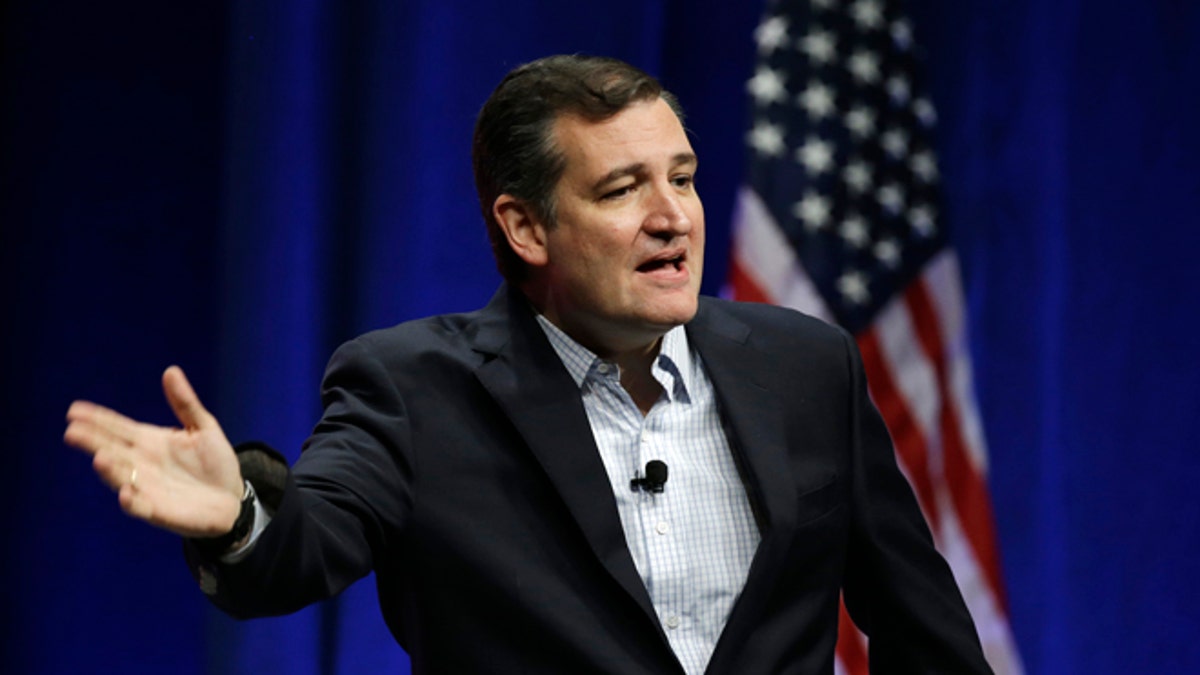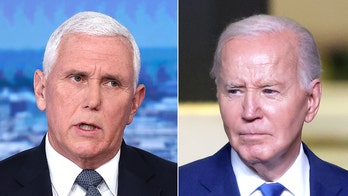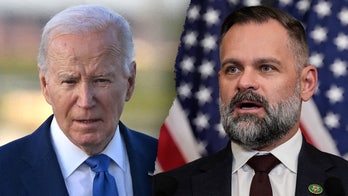
Sen. Ted Cruz addresses the Sunshine Summit in Orlando, Fla., Friday Nov. 13, 2015. (ap)
In a crucial win for Ted Cruz, the conservative firebrand won his home state of Texas in the Super Tuesday contest, with 39.1 percent of the vote.
He beat Donald Trump, who was winning most of the Super Tuesday primaries, by 11 points.
A win in Texas, which has the largest number of delegates – 155 – of all the Super Tuesday states and doles them out at the congressional level, was seen as crucial to Cruz’s argument that he is the only GOP candidate who can truly compete with mogul Donald Trump for the Republican presidential nomination.
After Florida, Texas has the most Latinos who identify as Republicans or who vote for them. Almost 30 percent of the state’s eligible voters are Latinos.
On the Democratic side, Hillary Clinton won the Lone Star State with 66 percent of the vote, double what her rival, Sen. Bernie Sanders received.
In another major coup for Cruz, he topped his rivals in Oklahoma. He received 34 percent of the vote in Oklahoma and Trump received 30 percent.
Cruz got about 30 percent of the Texas Latino vote when he ran for the U.S. Senate in 2012; Gov. Greg Abbot won 44 percent of the Latino vote in 2014.
Cruz, who is 45, believes that come Wednesday morning, he and Trump, who is 69, will be way ahead of the rest of the remaining GOP field in the number of delegates.
Cruz won in the Iowa caucus, and has come in third in the other early contests so far. He made history with the Iowa victory, becoming the first Hispanic in U.S. history to win a presidential primary.
But Cruz, who had sought the conservative mantel, diligently pursuing evangelicals and filling his campaign with pastors, has not won the most conservative states, particularly in the South, losing them to Trump.Cruz had put in considerable time in South Carolina, only to lose the primary to Trump by a large margin, and coming in slightly behind Marco Rubio.
Although Rubio, 44, has come in second in nearly all the primaries except in New Hampshire, Cruz has repeatedly stressed that he has not won any of them.
For his part, Rubio expresses certainty that he can get enough delegates to mount a challenge to Trump. He is the preferred candidate of the so-called GOP establishment, which does not care for either Cruz or Trump.
Rubio is particularly counting on his home state of Florida, whose March 15 primary is winner-take-all-delegates, to come through for him.
Marco Rubio’s campaign fired off a fundraising e-mail to his supporters on Tuesday saying he would fight till the end.
“This is going to be a long campaign," the e-mail said, "and we are NOT going to hand over our party to a dangerous con artist.”
Like us on Facebook




